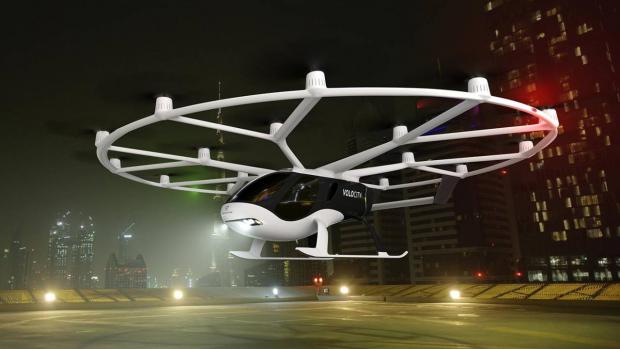
Breaking News
 Ron's Take: The US and Iran War
Ron's Take: The US and Iran War
 Kurdish Boots on the Ground with US/Israeli Air and Drones
Kurdish Boots on the Ground with US/Israeli Air and Drones
 Clinton Epstein Deposition Highlights: Ex-President & Secretary Of State Grilled On Ties...
Clinton Epstein Deposition Highlights: Ex-President & Secretary Of State Grilled On Ties...
Top Tech News
 US particle accelerators turn nuclear waste into electricity, cut radioactive life by 99.7%
US particle accelerators turn nuclear waste into electricity, cut radioactive life by 99.7%
 Blast Them: A Rutgers Scientist Uses Lasers to Kill Weeds
Blast Them: A Rutgers Scientist Uses Lasers to Kill Weeds
 H100 GPUs that cost $40,000 new are now selling for around $6,000 on eBay, an 85% drop.
H100 GPUs that cost $40,000 new are now selling for around $6,000 on eBay, an 85% drop.
 We finally know exactly why spider silk is stronger than steel.
We finally know exactly why spider silk is stronger than steel.
 She ran out of options at 12. Then her own cells came back to save her.
She ran out of options at 12. Then her own cells came back to save her.
 A cardiovascular revolution is silently unfolding in cardiac intervention labs.
A cardiovascular revolution is silently unfolding in cardiac intervention labs.
 DARPA chooses two to develop insect-size robots for complex jobs like disaster relief...
DARPA chooses two to develop insect-size robots for complex jobs like disaster relief...
 Multimaterial 3D printer builds fully functional electric motor from scratch in hours
Multimaterial 3D printer builds fully functional electric motor from scratch in hours
 WindRunner: The largest cargo aircraft ever to be built, capable of carrying six Chinooks
WindRunner: The largest cargo aircraft ever to be built, capable of carrying six Chinooks
Taxi! To the Airport -- by Air, Please.

Instead of sitting in rush-hour traffic for two hours, you take a short ride to a nearby parking garage where you board an electric aircraft that takes off vertically from the roof and deposits you at Kennedy 20 minutes later for roughly the same cost as a fancy ride-share. You make your flight in time.
While this scenario might sound far-fetched, several companies say they are on the verge of being able to offer safe, cheap, clean electric aircraft that can help passengers travel distances between two and 150 miles without the need for a conventional runway. Public and private experts believe the technology could grow into a massive market that helps ease congestion and changes the way people travel in major metropolitan areas.
While urban air travel is currently out of reach for most customers (think: Uber Copter), improvements in battery technology have driven down the cost of developing electric-powered aircraft that are viable as urban passenger transportation. These companies are betting they can bring electric urban and regional air travel to the masses, and have developed new aircraft to compete for a slice of this nascent market within the next few years.
"We want to create something that is available to a lot of people, that can do the job of a high-speed train without requiring the infrastructure," said Daniel Wiegand, chief executive and founder of Lilium Air Mobility, based in Germany. "We won't be at the ticket price of a high-speed train in Germany on our first day, but if we don't get there within 15 years I would consider our mission failed."
Manufacturers say these electric aircraft have numerous advantages over conventional aircraft and especially helicopters, which are expensive to maintain and fly, noisy, and come with safety risks, as seen in the crash that killed Kobe Bryant and eight other passengers.

 Tulsi Gabbard Should Resign
Tulsi Gabbard Should Resign
 RNA Crop Spray: Should We Be Worried?
RNA Crop Spray: Should We Be Worried?

